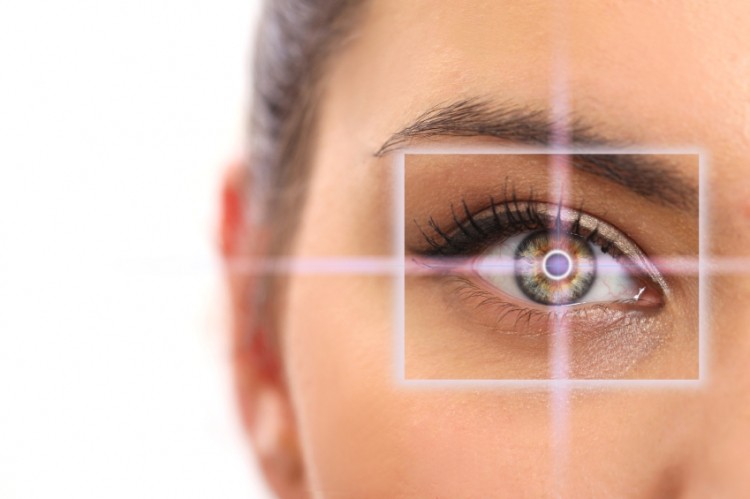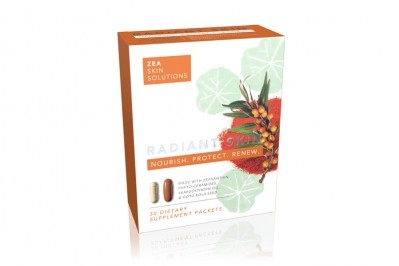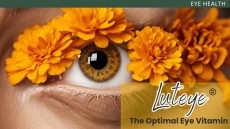Cochrane review that belittled carotenoids' role in slowing AMD didn't value AREDS II result highly enough, researchers say

The article, published on July 31, was written by two English researchers associated with institutions in London. The authors looked at randomized controlled trials (RCTs) that compared antioxidant vitamin or mineral supplementation (alone or in combination) to placebo or no intervention, in people with AMD (Age-related Macular Degeneration). They found 19 trials that met their criteria, with the largest trial being the AREDS II trial.
They concluded that, “People with AMD may experience some delay in progression of the disease with multivitamin antioxidant vitamin and mineral supplementation. This finding was largely drawn from one large trial, conducted in a relatively well-nourished American population. . . Supplements containing lutein and zeaxanthin are heavily marketed for people with age-related macular degeneration but our review shows they may have little or no effect on the progression of AMD.”
AREDS II result seen as highly significant
Jim Stringham, PhD, a prominent carotenoids researcher at the University of Georgia and a member of the International Carotenoids Society, said designing studies to look at AMD is a difficult task, one that is rife with confounding factors. AMD is by definition a disease of later life, and subjects may be suffering also from a variety of other conditions, such as obesity and its related conditions such as type II diabetes, inflammatory conditions such as arthritis, or the cumulative effects of choices such as smoking.
And Stringham said that patients come from different backgrounds with differing underlying nutritional statuses, are often at different stages of the disease (it’s a multi-year process) and may have genetic factors that affect its progression. Put all that together, and he said the chances of showing a statistically significant benefit from lutein and zeaxanthin supplementation would be slim.
“And you know what? That thing basically happened. Although it wasn't the best of study designs, secondary analysis of the AREDS II study (which included lutein and zeaxanthin in the formulation) found a 25% reduced risk of AMD progression attributable to lutein and zeaxanthin. If a drug company were to find those numbers for a new drug in a trial, they would begin celebrating—that kind of number is extremely difficult to achieve. The authors of the Cochrane publication make note of AREDS II, but I am not sure that they appreciate the significance of it,” Stringham told NutraIngredients-USA.
Visual performance measures seen as important
John Nolan, PhD, a researcher at the Waterford Institute of Technology in Ireland, also noted the deficiencies of the AREDS II study design. The study did not delve into parameters of visual performance in detail and it did not use meso-zeaxanthin, which has figured in his research along with the other two macular pigments.
“We value the data and report of the Cochrane Review however, we also feel that one must assess and understand the totality of the evidence available with respect to antioxidant supplementation for vision. We know that, for example, via randomized controlled trials conducted at our center, that visual performance in patients with non-advanced AMD is significantly improved following supplementation with the three macular carotenoids and co-antioxidants,” Nolan said.
AREDS II showed highest benefit in lowest quartile
Dick Roberts, PhD, of carotenoids supplier Kemin Industries, which supplies branded ingredient FloraGLO lutein, said parsing out the AREDS II data provides a closer look at how profound this effect was. Roberts, who is the manager of scientific and regulatory affairs for the company’s human health and nutrition division, admitted the study population was ‘well nourished’ in the sense that many of them had a higher lutein and zeaxanthin intake than the US population as a whole. This potential built in bias might have been one of the factors that led the Cochrane authors to be less convinced about the secondary results of this study than many in the industry are. But looking closer at the data, Robert said the secondary analysis showed this:
- The main effect of lutein/zeaxanthin demonstrated a 10% reduction in risk of progression to advanced AMD (AAMD) .
- There was an 18% reduction in the risk of progression to AAMD with lutein/zeaxanthin in head-to-head comparison with beta-carotene, when used in the AREDS formulation.
- AREDS II results showed a 26% reduction in the risk of progression to AAMD for lutein/zeaxanthin beyond the effects of AREDS supplements in subjects in the lowest quintile of lutein and zeaxanthin dietary intake.
This last point is especially important, Roberts said, because it is indicative of what these carotenoids could do for someone who had not been supplementing or eating carotenoids-rich foods in the first place.
“The lowest quintile of lutein and zeaxanthin intake amongst the AREDS II study population were representative of the intake of these two carotenoids in the US making this group more representative of the effects that supplementation with lutein and zeaxanthin should provide in the US population as a whole,” Roberts said.
Keep the goal—prevention—in mind
Linda Doyle, senior vice president of global marketing for Omniactive Health Technologies, which supplies branded ingredient Lutemax 2020, said it’s important to note that macular degeneration is a multifactorial disease, so it’s unlikely that single group of compounds will prevent it in its entirety.
“Studies like AREDS II are directional, and to further examine what role vitamins/minerals play in slowing AMD in healthy populations requires establishing important guidelines like optimal dose(s) and study length, to name a few,” she said.
Doyle also cautioned that the whole discussion engendered by the Cochrane article strays from the main point, that being the prophylactic benefits of carotenoid supplementation. Once AMD starts to manifest itself via visual symptoms the metabolic cascade within the macula is already well advanced and much irreversible damage has already been done.
“Our industry’s focus is not to treat diseases but to support overall health —including eye health —and vitamins and minerals play an integral role,” Doyle said.
Stringham echoed that sentiment saying that, ‘“Although here in America we tend to look at fixing problems (such as AMD), the greatest benefit of lutein and zeaxanthin supplementation is certainly preventative. I certainly believe that the earlier in life you can raise levels of lutein and zeaxanthin in the eye, the more benefit you will gain in terms of cumulative protection against blue light damage and oxidative stress in the retina. This is not simply my opinion—this is based on simple physiology and biochemistry, which suggests that prolonged exposure (i.e., decades) to relatively low levels of oxidative stress can wreak havoc in biological systems, especially those that maintain high metabolism (e.g., retina and brain).”
Suppliers support ingredients with studies
Both Richards and Doyle said that their companies have conducted extensive research to support their ingredients. Many of these are smaller scale or shorter duration trials, and thus would not have cleared the bar set by the Cochrane authors, but that doesn’t mean the data should be discounted, they said. (This point also drives to the question of whether randomized controlled trials are the best or even the only valid model for nutritional research, but that’s a question for another day.)
“Although we rely heavily on the human clinical trial results to support the efficacy and safety of our products, it is the totality of the available scientific support is important to us and our customers,” Richards said. He noted that more than 80 peer reviewed studies using FloraGLO lutein (which was used in the AREDS II trial) have showed positive results for the ingredient.
Doyle said research backing for her company’s ingredient has been piling up, too, especially in recent months.
“Between 2016-17, seven clinical publications on Lutemax 2020 have been completed highlighting that the macular carotenoids are not only important for protecting the eyes and reducing the risk of conditions like AMD but also for improving visual performance in healthy subjects,” she said.
Source: Cochrane Database of Systematic Reviews
“Antioxidant vitamin and mineral supplements for slowing the progression of age-related macular degeneration"
DOI: 10.1002/14651858.CD000254.pub4
Authors: Evans JR, Lawrenson JG
















